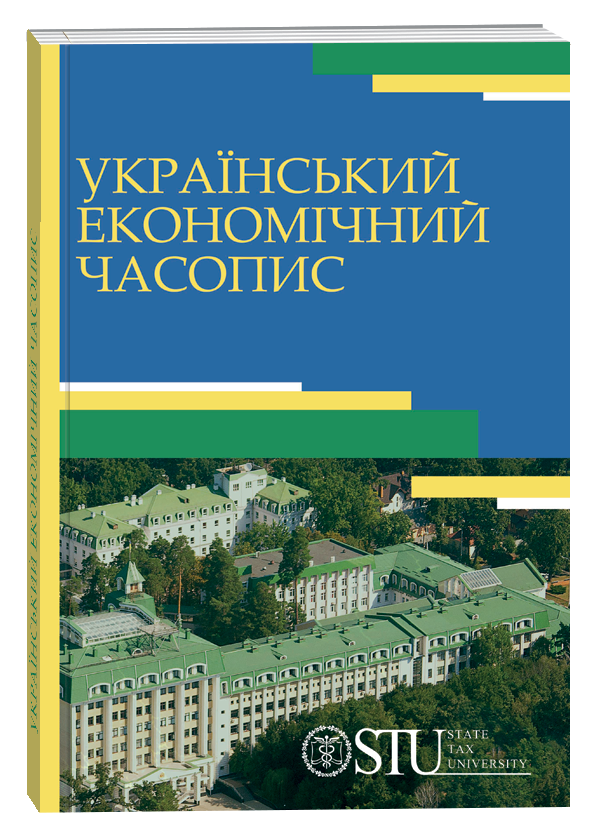THE NEED FOR INDEXATION OF THE ALLOWANCES OF MILITARY PERSONNEL AND THE SALARIES OF CIVIL SERVANTS IN THE UKRAINE
DOI:
https://doi.org/10.32782/2786-8273/2024-5-24Keywords:
financial support, indexation, salary, military personnelAbstract
Introduction. In conditions of high inflation, household incomes tend to fall. Indexation of monetary incomes is one of the measures to ensure the growth of household incomes. Indexation of monetary incomes of citizens (salaries of military personnel, salaries of civil servants and employees) in Ukraine is important for ensuring social justice and preserving the purchasing power of the population. The decision to index citizens' incomes is taken at the state level and may be part of the state's social and economic policy. The purpose of this article is to examine the need for indexation of military and civil servants' salaries as an important aspect of monetary compensation and social protection. Methods. The article uses general scientific and special methods of scientific cognition, in particular, the dialectical method, formal logical method, correlation analysis, system-structural method. Results. The article states that the indexation of cash incomes of Ukrainian citizens is important for ensuring social justice and preserving the purchasing power of the population. Indexation of cash incomes is useful in cases of inflation, to establish social justice, to maintain economic stability, political and social peace. The article examines the concept and peculiarities of indexation of military salaries. The author proves the necessity of indexation of incomes of citizens and especially of military personnel, since incomes in 2022 will decrease by 5% compared to 2021, and in 2023 will increase by only 18%. However, when compared to actual expenditure, it was found that revenues should have increased by 21.2% in 2022 and by 14% in 2023, indicating the need for income indexation. The author notes that it is important to ensure that the indexation of the monetary income of the population is aimed at increasing real purchasing power and does not place an unnecessary burden on the budget. Conclusion. In order to solve the problems of indexation, the author suggests the introduction of budget planning, efficient use of resources and negotiations with trade unions. Indexation should be efficient and as rational as possible. It should reduce the burden on the budget.
References
Вічавський Д. Р. Роль грошового забезпечення у стимулюванні до військової служби. Бізнес, цифрові інновації та підприємництво: стан, аналіз тенденцій та науково-економічний розвиток : матеріали Міжнар. наук.-практ. конф. (м. Львів, 22 груд. 2018 р.). Львів: ЛЕФ, 2018. Ч. 2. С. 67–69.
Ляпін М. В., Чімишенко С. М. Роль грошового забезпечення в системі матеріального забезпечення військовослужбовців. Сучасні проблеми розбудови Збройних Сил України: матеріали Всеукр. наук.-практ. конф. (Київ, 26 квіт. 2013 р.). Київ: ВІКНУ, 2013. С. 197–198.
Марчукова О. І. Грошове забезпечення військовослужбовців, – очікування і реалії. Social development & Security. 2018. Вип. 3, № 1. С. 83–94.
Удовенко О. В. Основні риси грошового забезпечення військовослужбовців в Україні. Юридична наука. 2019. №9. 131–136.
Про Державний бюджет України на 2023 рік: Закон від 03.11.2022 р. №2710-IX. URL: https://zakon.rada.gov.ua/laws/show/2710-20 (дата звернення: 22.02.2024)
Про Державний бюджет України на 2024 рік: Закон від 09.11.2023 р. №3460-IX. URL: https://zakon.rada.gov.ua/laws/show/3460-IX#Text (дата звернення: 19.02.2024)
Мельник Я.О. Державне регулювання оплати праці: досвід зарубіжних країн. Соціальне право. 2020. №3. С. 87–92.
Dimitrov I., Davydenko N., Lotko A., Dimitrova A. Comparative study of environmental determinants of entrepreneurship intentions of business students. International Conference on Creative Business for Smart and Sustainable Growth, CreBUS 2019. URL: https://www.scopus.com/record/display.uri?eid=2-s2.0-85073230707&origin=resultslist&sort=plf-f&src=s&sid=fe49486a375106cf302880a044b82674&sot=autdocs&sdt=autdocs&sl=18&s=AU-ID%2856912202600%29&relpos=0&citeCnt=0&searchTerm= (дата звернення: 26.02.2024).
Kvasha S., Davydenko N., Pasichnyk Y., Viatkina T, Wasilewska N. GDP modelling: assessment of methodologies and peculiarities of its usage in Ukraine. Problems and Perspectives in Management, 2018. С. 186–200.
Vichavsky D. R. (2018). Rol hroshovoho zabezpechennia u stymuliuvanni do viiskovoi sluzhby [The role of financial support in incentivising military service]. Biznes, tsyfrovi innovatsii ta pidpryiemnytstvo: stan, analiz tendentsii ta naukovo-ekonomichnyi rozvytok: Mizhnarodna naukovo-praktichna konferenciya (Lviv, December, 22nd, 2018). Lviv: LEF (in Ukrainian).
Lyapin M. V., Chimishenko S. M. (2013). Rol hroshovoho zabezpechennia v systemi materialnoho zabezpechennia viiskovosluzhbovtsiv [The role of financial support in the system of material support for the military]. Suchasni problemy rozbudovy Zbroinykh Syl Ukrainy: Vseukrainska naukovo-praktichna konferenciya. (Kyiv, April, 26th, 2013). Kyiv: VIКNU (in Ukrainian).
Marchukova O. (2018). Hroshove zabezpechennya viysʹkovosluzhbovtsiv, – ochikuvannya i realiyi [Military support for troops - expectations and realities]. Social development & Security, 1(3), 83–94 (in Ukrainian).
Udovenko O. V. (2019). Osnovni rysy hroshovoho zabezpechennia viiskovosluzhbovtsiv v Ukraini [The main features of military personnel's remuneration in Ukraine]. Law science, 9, 131–136 (in Ukrainian).
Pro Derzhavnyi biudzhet Ukrainy na 2023 rik: Zakon Ukrainy vid 03.11.2022 r. № 2710-IX [On the State Budget of Ukraine for 2023: Law of Ukraine, 2022 № 2710-IX]. Available at: https://zakon.rada.gov.ua/laws/show/2710-20#Text (accessed 22 February 2024)
Pro Derzhavnyi biudzhet Ukrainy na 2024 rik: Zakon Ukrainy vid 09.11.2023 r. №3460-IX [On the State Budget of Ukraine for 2024: Law of Ukraine, 2023 № 3460-IX]. Available at: https://zakon.rada.gov.ua/laws/show/3460-IX#Text (accessed 19 February 2024)
Melnyk Y.O. (2020). Derzhavne rehuliuvannia oplaty pratsi: dosvid zarubizhnykh krain [State regulation of remuneration: experience of foreign countries]. Social law, 3, 87 – 92 (in Ukrainian).
Dimitrov I., Davydenko N., Lotko A., Dimitrova A. Comparative study of environmental determinants of entrepreneurship intentions of business students. International Conference on Creative Business for Smart and Sustainable Growth, CreBUS 2019. Available at: https://www.scopus.com/record/display.uri?eid=2-s2.0-85073230707&origin=resultslist&sort=plf-f&src=s&sid=fe49486a375106cf302880a044b82674&sot=autdocs&sdt=autdocs&sl=18&s=AU-ID%2856912202600%29&relpos=0&citeCnt=0&searchTerm= (accessed February 26, 2024) (in English)
Kvasha S., Davydenko N., Pasichnyk Y., Viatkina T, Wasilewska N. (2018) GDP modelling: assessment of methodologies and peculiarities of its usage in Ukraine. Problems and Perspectives in Management, pp. 186-200 (in English)



